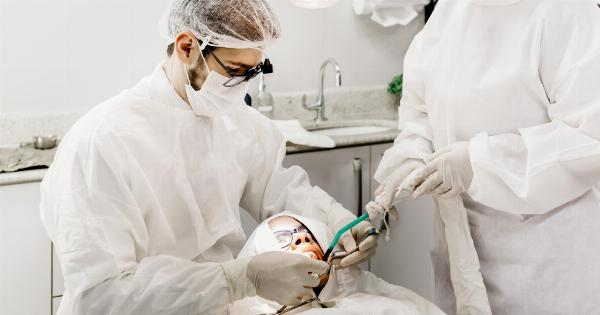Having a healthy sex life forms an integral part of a fulfilling and satisfying life. It is understandable for men to worry when their libido takes a dip.
Things like work stress, lifestyle habits, underlying health conditions, and diet can play a big role in reducing one’s sex drive.
Stress and Anxiety
Stress and anxiety can be detrimental to your libido. These conditions can suppress the production of sex hormones, creating a lack of sexual desire or erectile dysfunction.
Therefore, finding ways to manage stress and reduce anxiety levels can help you improve your sex drive.
Stress-relieving activities such as meditation, breathing exercises, and yoga can help reduce the cortisol hormone, which causes stress and anxiety.
Additionally, some studies show that acupuncture and massage therapy help ease tension and anxiety, which can also help boost libido.
Relationship Issues
Problems within your relationship can affect your libido. Strained relationships, conflict, or unresolved emotional issues can cause depression, anxiety, and stress that may affect your sex life.
Sometimes, working with a therapist can help you find ways to address the problem and improve the relationship. Open communication and expressing your needs can also help to mend a strained relationship.
Lack of Sleep
The quality and amount of sleep that you get can affect your libido. Poor sleep can lead to fatigue, low energy levels, and inability to perform sexually. Lack of sleep can cause hormonal imbalances, leading to a decrease in libido.
Therefore, aiming for at least 7 to 8 hours of sleep every night can help boost your sex drive.
Unhealthy Diet
Your diet plays a significant role in your overall health, and it can have a significant effect on your libido.
A diet low in nutrients, high in fat and sugar, and lacks vitamins and minerals can affect the secretion of testosterone, which is the hormone that drives male sex drive. Foods rich in zinc such as oysters, nuts, beans, and seeds play a crucial role in boosting testosterone levels. Other foods to include in your diet include fruits and vegetables, lean proteins, and whole grains.
It is important to avoid processed and fried foods, carbonated drinks and reduce alcohol intake as these foods can lower libido levels, leading to erectile dysfunction.
Alcohol is a mood depressor and can affect the nervous system’s ability to communicate with the brain and genitals, reducing sexual desire.
Lack of Exercise
Exercise is essential for optimal health, and it can help improve sex drive. A sedentary lifestyle can lead to weight gain, which can result in hormonal imbalances, leading to a decrease in testosterone.
Regular exercise can improve blood flow to the genital area and promote testosterone production, leading to a boost in male libido.
Ageing
As men age, their testosterone levels decline. Low testosterone levels can result in erectile dysfunction, low sex drive, and other sexual problems.
The decline in sexual function is a natural process, but there are ways to address the issue, such as testosterone replacement therapy. If you have concerns about your sexual function, you should consult your doctor for appropriate advice.
Health Problems
Underlying health conditions such as diabetes, hypertension, and heart disease can affect your sex life. These health problems can affect blood flow, reduce testosterone levels, and lead to erectile dysfunction.
If you have concerns about your sexual function, it is important to discuss these with your healthcare provider so that they can rule out any underlying medical conditions.
Medications
Some medications can cause a decrease in libido and sexual desire. Antidepressants, high blood pressure medications, and hormonal medications such as those used in prostate cancer treatment can affect sexual function.
If you experience a decrease in sexual desire after starting a new medication, it is essential to discuss this with your doctor.
Conclusion
Low libido can be a frustrating experience, but it is not uncommon. Several lifestyle factors, including stress, relationship issues, lack of sleep, unhealthy diet, lack of exercise, ageing, health problems, and medications, can affect male libido.
However, by identifying the underlying causes and making some necessary lifestyle changes, it is possible to improve sexual function and increase your libido.































